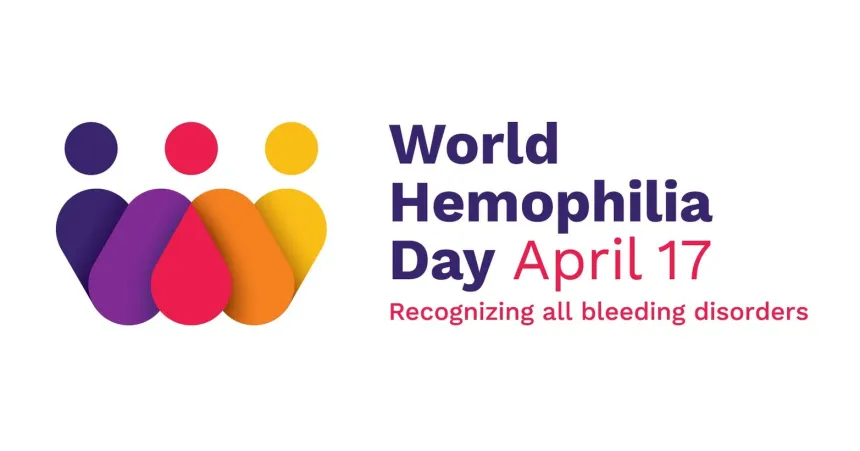Every year on April 17th, World Hemophilia Day is celebrated to raise awareness about hemophilia and other bleeding disorders. This day focuses on educating people and advocating for better diagnosis, treatment, and support for those affected.
The theme for 2025 is “Access for All: Women and Girls Bleed Too.” This theme highlights the need for improved care for women and girls, who often remain undiagnosed and underserved.
Hemophilia is a rare genetic bleeding disorder caused by a deficiency in certain clotting factors, which prevents blood from clotting properly. This can lead to excessive bleeding after injuries, surgeries, or even spontaneous internal bleeding, especially in joints and muscles. While hemophilia is typically inherited and affects mostly males, women can also carry the gene. Early diagnosis and appropriate treatment are essential to manage the symptoms and avoid severe health issues.
There are three main types of hemophilia:
- Hemophilia A is caused by mutations in the F8 gene, which makes clotting factor VIII.
- Hemophilia B occurs due to mutations in the F9 gene, affecting the production of clotting factor IX.
- Hemophilia C results from a deficiency in factor XI and is a rare form of the disorder.
Individuals with hemophilia may experience various symptoms, including prolonged bleeding, joint pain, swelling, and potential bone-related issues. In cases where hemophilia is undiagnosed, even minor injuries or surgeries can lead to serious internal bleeding, which can be life-threatening.
Women and girls with bleeding disorders face unique challenges that are often overlooked. Historically, hemophilia has been viewed as a male condition, resulting in under-diagnosis and delays in treatment for females. As a result, many women and girls suffer from prolonged bleeding episodes, misdiagnoses, and insufficient care.
World Health Organization (WHO) shared some of the key insights we should consider as we observe World Hemophilia Day, which include:

Under-diagnosis and Misconceptions: Women have often been seen merely as carriers of hemophilia, leading to significant delays in diagnosis and treatment.
Prevalence in Mild Cases: About 20 per cent of individuals with mild hemophilia are female, indicating that the condition in women is more common than previously recognized.
Severe and Moderate Hemophilia: Women with severe or moderate forms of hemophilia are rare, comprising less than 0.5 per cent to just over 1 per cent of diagnosed cases in specialized treatment centers.
Global Identification Gap: WHO notes that only around 100,000 women and girls worldwide have been diagnosed with hemophilia, von Willebrand disease, or other bleeding disorders. This suggests that many more remain undiagnosed.
Unique Health Challenges: Women with hemophilia have additional concerns related to menstruation, pregnancy, and childbirth, which can complicate their condition and require tailored medical care.
To help support World Hemophilia Day and raise awareness about bleeding disorders, individuals and communities can take part.
Consider sharing your story. You can talk about your own experiences or those of a loved one with a bleeding disorder. This can help others who may be going through similar situations feel understood and supported.
Take the time to learn how bleeding disorders affect women and girls, and share this information with people in your community to help raise awareness. You can also reach out to healthcare institutions. At The Nairobi West Hospital, we have a fully operational hematology department dedicated to improving the diagnosis, treatment, and awareness of bleeding disorders.
World Hemophilia Day serves as an important reminder of the ongoing need for awareness, support, and advocacy for those affected by hemophilia and other bleeding disorders, particularly women and girls who historically haven’t received the attention they deserve.
Dr. Boniface Kairu is a Clinical Hematologist & BMT Expert, The Nairobi West Hospital







More Stories
Sophie Ikenye: Family Appeals for KSh 5 Million to Fund Urgent Surgery and Ongoing Treatment
How Schools Can Play a Vital Role in Promoting Children’s Dental Hygiene
Hope for Parenthood: How IVF is Changing Lives at The Nairobi West Hospital